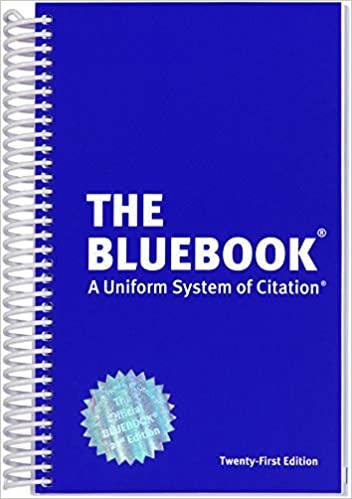Question
When language in a contract is unclear or ambiguous, one plausible rule would be to interpret it in whichever way would typically lead to the
When language in a contract is unclear or ambiguous, one plausible rule would be to interpret it in whichever way would typically lead to the most efficient outcome.However, a doctrine in contract law called contra proferentem holds that if I write contract and offer it to you as a take-it-or-leave-it deal, ambiguous or unclear language in the contract should be interpreted in whichever way is least favorable to me, the party that wrote the contract.(As one example, the California Civil Code, enacted in the late 1800s, says that when there is uncertainty, "the language of a contract should be interpreted most strongly against the party who caused the uncertainty to exist.")
What incentives does the doctrine of contra proferentem create?Does it function as a "penalty default" in the sense defined by Ayres and Gertner?What effect is this doctrine likely to have on transaction costs?
Step by Step Solution
There are 3 Steps involved in it
Step: 1

Get Instant Access to Expert-Tailored Solutions
See step-by-step solutions with expert insights and AI powered tools for academic success
Step: 2

Step: 3

Ace Your Homework with AI
Get the answers you need in no time with our AI-driven, step-by-step assistance
Get Started


